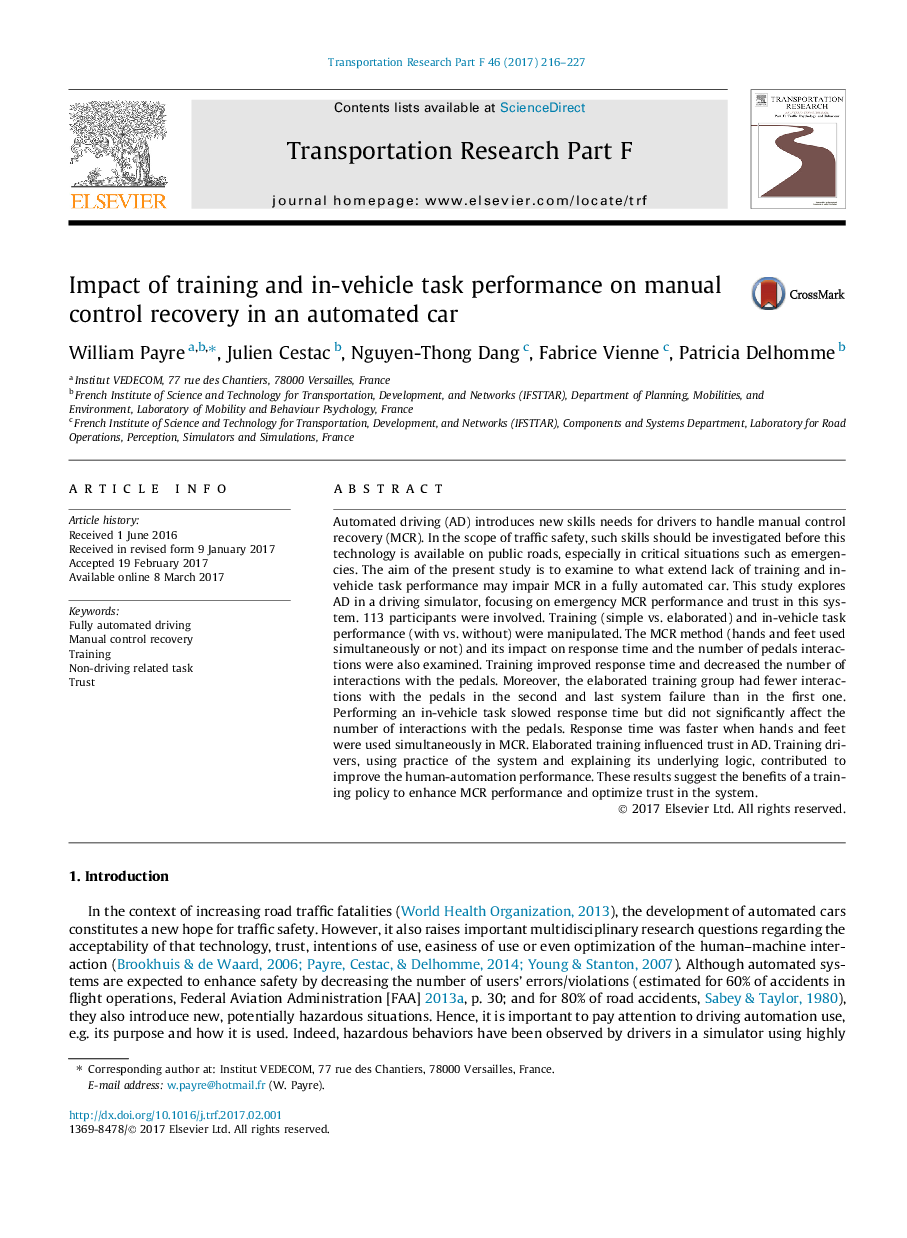| کد مقاله | کد نشریه | سال انتشار | مقاله انگلیسی | نسخه تمام متن |
|---|---|---|---|---|
| 5037442 | 1370222 | 2017 | 12 صفحه PDF | دانلود رایگان |
- An automated driving training for non-professional drivers is proposed.
- Training decreases response times and pedals interactions in cases of emergency.
- Training helps optimizing trust in the automated driving system.
- Performing an in-vehicle task increases response time in case of emergency.
- The way control is recovered could impact the transition to manual control.
Automated driving (AD) introduces new skills needs for drivers to handle manual control recovery (MCR). In the scope of traffic safety, such skills should be investigated before this technology is available on public roads, especially in critical situations such as emergencies. The aim of the present study is to examine to what extend lack of training and in-vehicle task performance may impair MCR in a fully automated car. This study explores AD in a driving simulator, focusing on emergency MCR performance and trust in this system. 113 participants were involved. Training (simple vs. elaborated) and in-vehicle task performance (with vs. without) were manipulated. The MCR method (hands and feet used simultaneously or not) and its impact on response time and the number of pedals interactions were also examined. Training improved response time and decreased the number of interactions with the pedals. Moreover, the elaborated training group had fewer interactions with the pedals in the second and last system failure than in the first one. Performing an in-vehicle task slowed response time but did not significantly affect the number of interactions with the pedals. Response time was faster when hands and feet were used simultaneously in MCR. Elaborated training influenced trust in AD. Training drivers, using practice of the system and explaining its underlying logic, contributed to improve the human-automation performance. These results suggest the benefits of a training policy to enhance MCR performance and optimize trust in the system.
Journal: Transportation Research Part F: Traffic Psychology and Behaviour - Volume 46, Part A, April 2017, Pages 216-227
